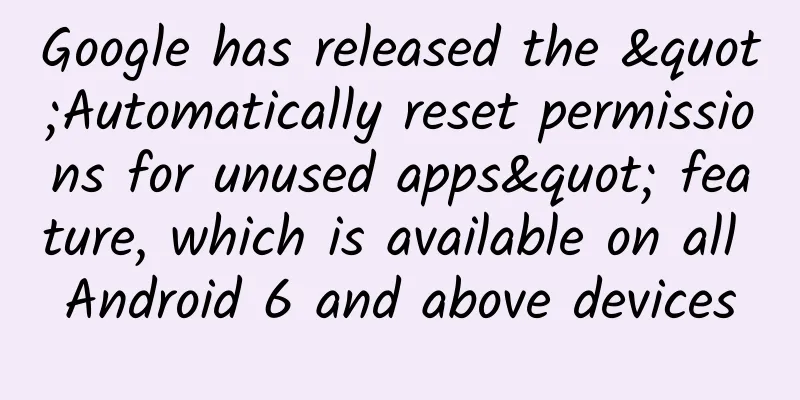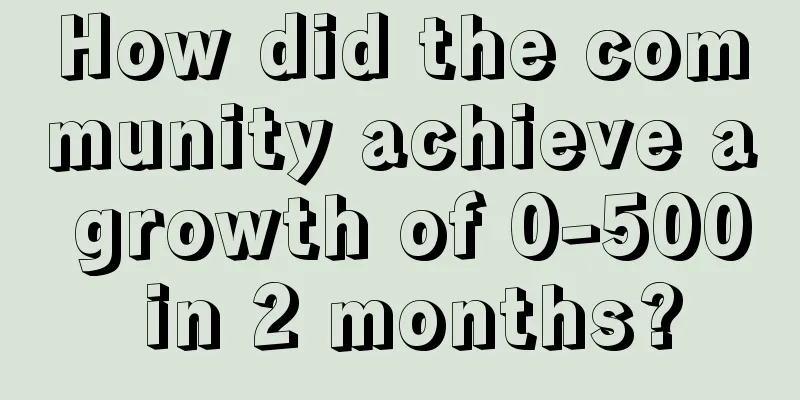Google has released the "Automatically reset permissions for unused apps" feature, which is available on all Android 6 and above devices

|
Automatically "reset permissions for unused apps" is a privacy feature introduced by Google in the Android 11 system to help users automatically limit infrequently used apps. This feature was previously limited to Android 11 and higher, but Google announced on Friday that it will be available in Android 6 and higher. Regarding the automatic "automatic reset of permissions for unused apps", the official introduction is as follows
That is, when you don't use an app for a set period of time, Android will automatically strip the app of all permissions it was previously granted, limiting it from tracking you or accessing data in the background. This is a nice feature for less tech-savvy people who aren't interested in manually organizing the inner workings of their phone. If you open the app again, it can ask for all those permissions again. Like most new Android features, "Automatically reset permissions for unused apps" is an exclusive feature launched in Android 11 last year. However, the number of users who can actually use this feature is not very large. Since the advent of Android 11, Google has stopped updating the Android version distribution map, so we don't know exactly how many users have upgraded to Android 11 and higher. Google's decentralization of "automatically reset permissions for unused apps" means that billions of devices around the world running Android 6 and above can get this privacy feature. Even Google's chart from 18 months ago showed that Android 6 and higher devices accounted for 84.9%. |
>>: Practical and fun! A list of lesser-known WeChat official gadgets
Recommend
Be careful, this kind of rescue "trick" can cost someone's life!
Recently, an enthusiastic reader left a message t...
If you don’t understand, just ask, why are there silkworm pupae hanging on ginkgo trees?
Before reading the article, a reminder The pictur...
All mobile practitioners should know: What exactly is deep linking?
In recent years, as startups have used, improved,...
Before disposing of your old phone, remember to do these two steps, otherwise your personal privacy will be easily leaked
Many people restore their old phones to factory s...
The new mobile app rankings for 2020 are released
The number of mobile Internet users this month re...
How to make users believe in your product?
Before users buy a product, their biggest concern...
Staying at home feels good for a while, but staying at home all the time makes you feel depressed? If you don’t want to become emo, please keep this guide
Expert of this article: Fu Lu, Master of Neurophy...
China starts controlling gallium exports today. How much will the global supply chain be affected?
China has implemented export controls on gallium ...
Antarctic glaciers are melting, and cities like New York will become oceans. Is it too late for scientists to save them?
Antarctica is known as the "cold source"...
How to operate a (product) APP?
This article is a summary of novice operations . ...
These 10 eating habits are quietly stealing your life! Many people don’t know it yet
Does your day start like this: rushing out in the...
What do Arctic methane bursts mean? What impacts will it have?
The Arctic methane burst refers to the fact that ...
Inositol, is it really that magical?
This is the 4774th article of Da Yi Xiao Hu Recen...
How to plan an event from 0 to 1?
1. Cognition: The first question to think about b...
15 sales secrets to achieve 100% conversion rate, how to ask questions to dig deep into needs
15 Sales Secrets for 100% Conversion Rate Resourc...









